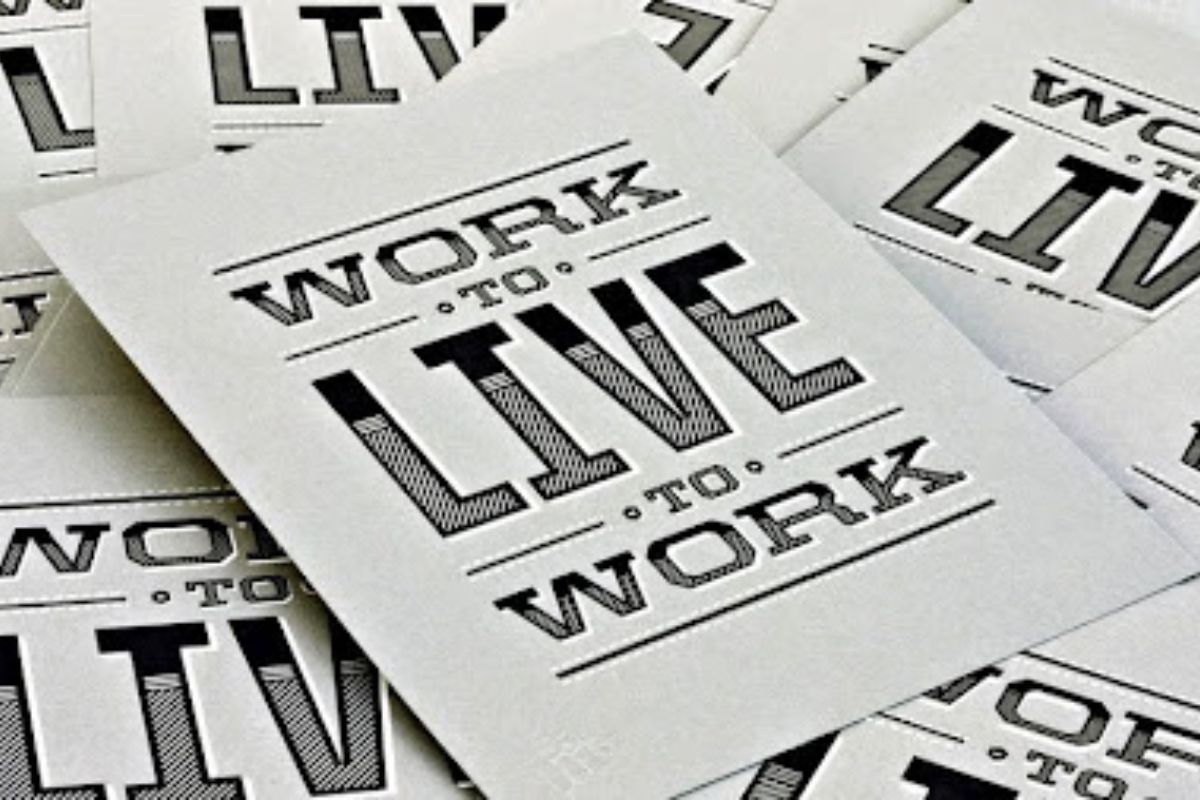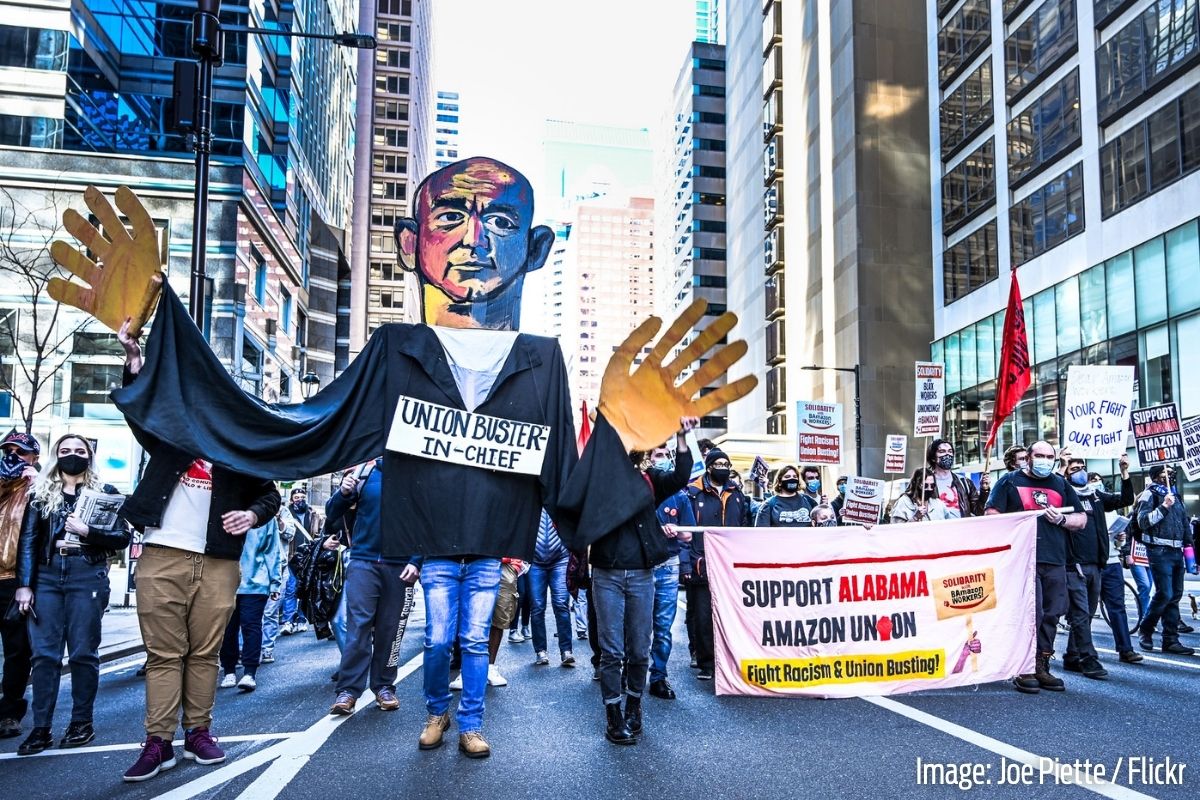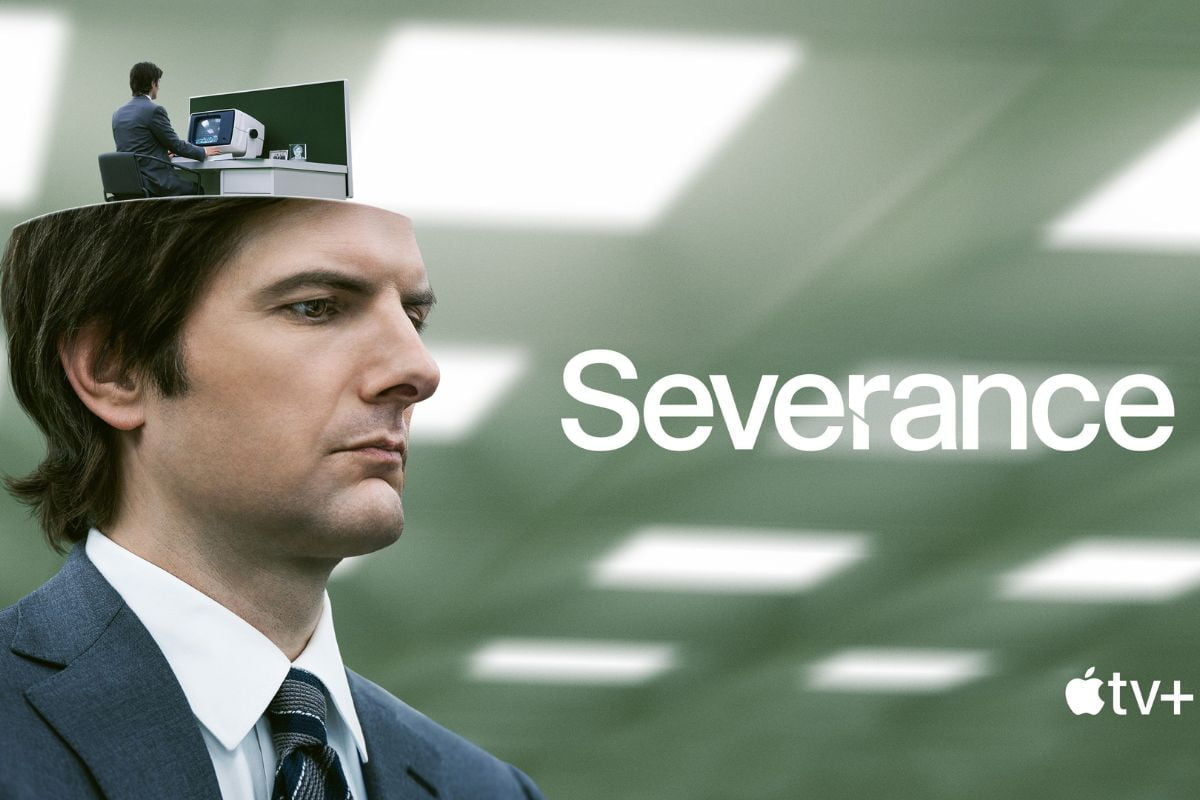Apple TV+ series Severance is a dark comedy thriller, depicting the lives of workers at the shadowy Lumon Industries. Touching on questions of ‘freedom’, alienation, and rebellion, the series reflects the growing unease of workers with capitalism.
Severance is a dystopian sci-fi series, made in the best traditions of Black Mirror. Combining dark comedy with psychological thriller, the series brilliantly depicts the kafkaesque horror of work under capitalism, and the disillusionment of workers within a corporate hellscape.
Directed by Ben Stiller and Aoife McArdle, it has received outstanding reviews from critics, and is nominated for multiple awards. It is available to stream on Apple TV+.
The series depicts the day-to-day life of a data analysis department at the mysterious Lumon Industries. It is never disclosed what exactly Lumon Industries produces – something that the workers will struggle to uncover as the series unfolds.
In order to work at the company, workers must first undergo a ‘severance’ procedure, where their consciousness and memories are split between their home and work lives. As a result, the workers have no recollection of their work life while at home, nor their home life at work. This leads to two completely separate identities forming within one person – their ‘innie’ selves at work, and their ‘outie’ selves outside.
Illusion of choice

The series starts by introducing us to Helly (Britt Lower), the newest employee. She finds herself disorientated and locked in a conference room, while a voice through a speaker asks her a series of questions which reveal that she has no recollection of who she is.
The voice on the speaker is Mark (Adam Scott), the main protagonist and Helly’s line manager. Mark also went through the severance procedure, and is likewise ignorant of what Lumon actually does.
As Helly arrives at the understanding of her identity as nothing but an instrument of labour, she develops a keen desire to resist. Consequently, she makes numerous attempts to escape the company. But when Helly asks Mark if she is a prisoner in Lumon, Mark replies: “Every time you find yourself here, it’s because you chose to come back.”
We are often fed the same fable about capitalism being a system of ‘ultimate freedom’, where each one of us supposedly has full control over our destinies. If you don’t like your job, you are supposedly free to leave at any time and find something better.
In reality, however, although you may stop working for one group of capitalists, the only option for the vast majority of workers is to sell your labour power to another set of capitalists, or face destitution. That is, if another job can be found, which is far from certain, given the crisis of capitalism.
Although as workers we may not belong to a specific capitalist, we are therefore effectively wage-slaves to the capitalist class as a whole.
Indeed, Helly never really has a choice to leave working for Lumon. She is an instrument of labour and nothing more. To quit would mean the imminent death of her ‘innie’ self. Should she stop serving her purpose as a tool for Lumon’s shareholders, the memories, experiences, and personality cultivated while working for the company would vanish. Her entire destiny is therefore to remain a slave to the company.
Mysterious
When Helly tries to find out more about what exactly Lumon Industries does, Mark tells her “work is important and mysterious”.
Mark and Helly are completely alienated from the fruits of their labour. The tasks undertaken by the data analysis department are completely ludicrous to the outside observer. And employees are not even aware of how the data sorting they do fits into the overall structure or purpose of the company.
Under capitalism, as companies grow and turn into international conglomerates, the division of labour within them becomes ever more specialised. The connection between workers and the product of their labour becomes hidden. As systems become more and more complex, we are forced to focus entirely on our narrow specific fields, without any awareness of the entirety of the overall process behind them. Work is mysterious and important indeed!
According to a 2005-2015 European Working Conditions Survey, 1-in-20 employees believe that their jobs are ‘useless’ and have no social value. This is a product of the fragmentation of workers, and their alienation from what they produce. Rather than our work serving the needs of society, all that matters is that our work produces profit for some unknown shareholders.
Instead of having conscious control over our work, as part of a democratic plan to meet the needs of society, all we can do is follow the orders of our bosses. But with the resulting rise of disillusionment and dissatisfaction of workers with their jobs, this situation inevitably produces a backlash at some point or other.
Transformation

Lumon employees’ ‘outies’ cannot communicate with each other outside of work, as they don’t even know who they work with. But their ‘innies’ growing sense of unease within the company leads increasingly to them joining together to rebel. Through their rebellion, which progresses from a number of small acts, their consciousness is transformed.
This process of radicalisation mirrors the processes taking place in companies all over the world. Increasingly intolerable working and living conditions reach a tipping point, forcing workers into collective struggle.
This is evident with the success of unionisation campaigns worldwide in companies such as Starbucks, or the phenomenon of wildcat strikes sweeping Britain, including in companies such as Amazon. In the process, workers’ consciousness about their strength and position in society is transformed.
Thankfully, ‘severance’ technology is not available to the bosses in real life. However, there are plenty of other tools in the capitalists’ box designed to prevent us from fighting back, as any Amazon employee or Uber driver could testify.
None of them though will be capable of preventing a social explosion of the working class, which is inevitable at a certain stage – and which is already beginning before our eyes.
The fact that Severance has struck such a chord with so many is a reflection of the growing frustration and unease at workplaces under capitalism – a trend that is increasingly being depicted on screen. And as capitalism falls further into crisis, this discontent keeps on growing. We are left with no other choice but to unite and take action.






